On one of Nørrebro’s most famous streets, a hidden gem was made during the times of crisis. Because of the pandemic, some of his other shops couldn’t operate, so Servan Symfoni opened one with dürüm. Today, it is a blooming business with some of the greatest reviews amongst dürüm places in Copenhagen, bringing tradition and quality into the multicultural center of the city.
By Anna Tereza Kristóf and Vladimír Nezdařil

Nørrebrogade, the busiest cycling street in Copenhagen, has lived through many events already. From its transformation from countryside to become an official part of the city in 1852, to the violent riots between the police and Nørrebros squatters in 2007, it always manages to stay center of both cultural and political events. Much calmer yet beaming with life today, the street has become a multiethnic heart of Nørrebro, being a home to design shops, antique stores, cafes and bars. But what strikes the eye and nose of those with an empty stomach the most are the colorful dürüm stores lining both sides of the street.
„It’s a family place. I work with my father, my little brother, and my uncle.” says Servan Symfoni about his Dürüm Symfoni shop, located just across the street from the famous Assiston‘s Cemetery. The door is wide open, and the smell of freshly baked bread is flowing onto the street covered in late afternoon sun.
Inside the shop, Anita and Glym are preparing the next batch of dough, while Cemal is taking care of the customers. “Everything is homemade. We make the bread ourselves, it’s always fresh. And my father makes the kebab in the morning. We’re mostly using Turkish ingredients, so that way it’s a little bit cultural for me,” explains Servan.

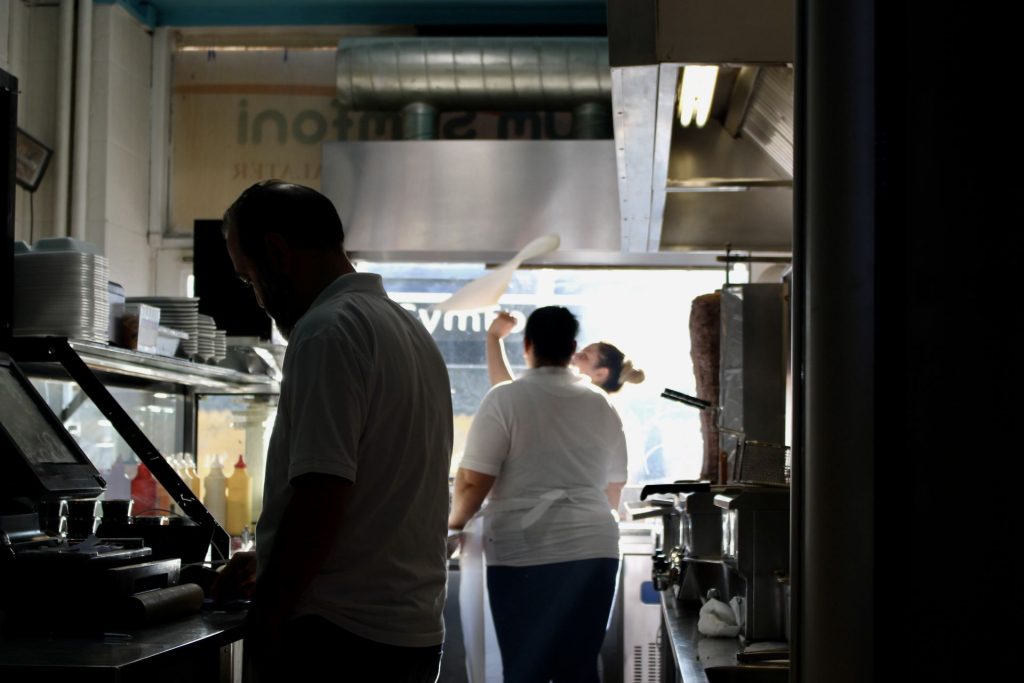
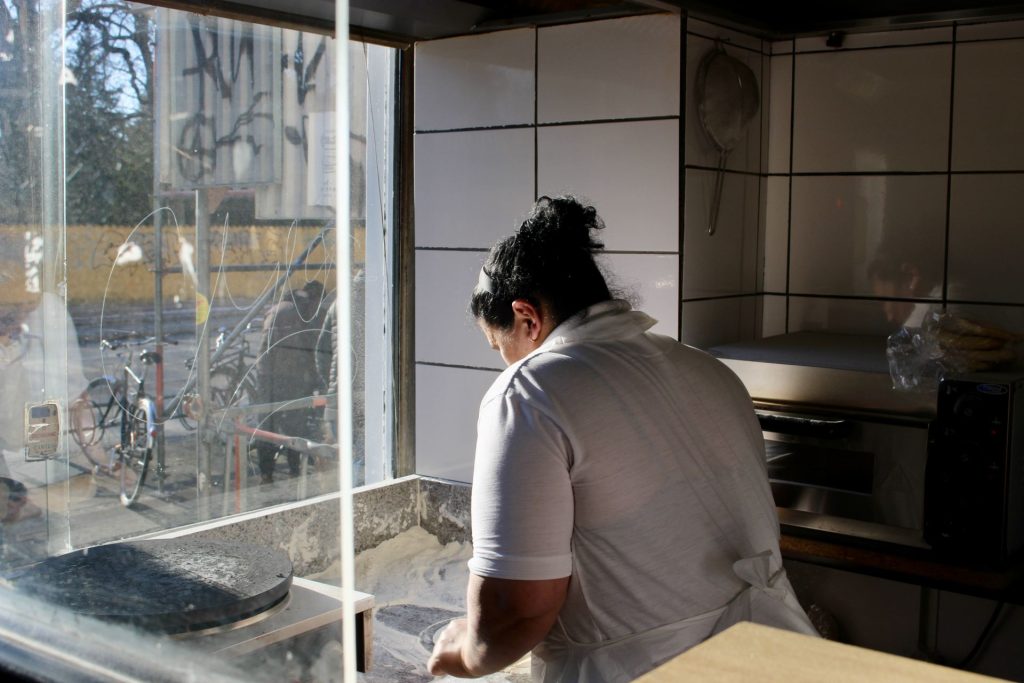
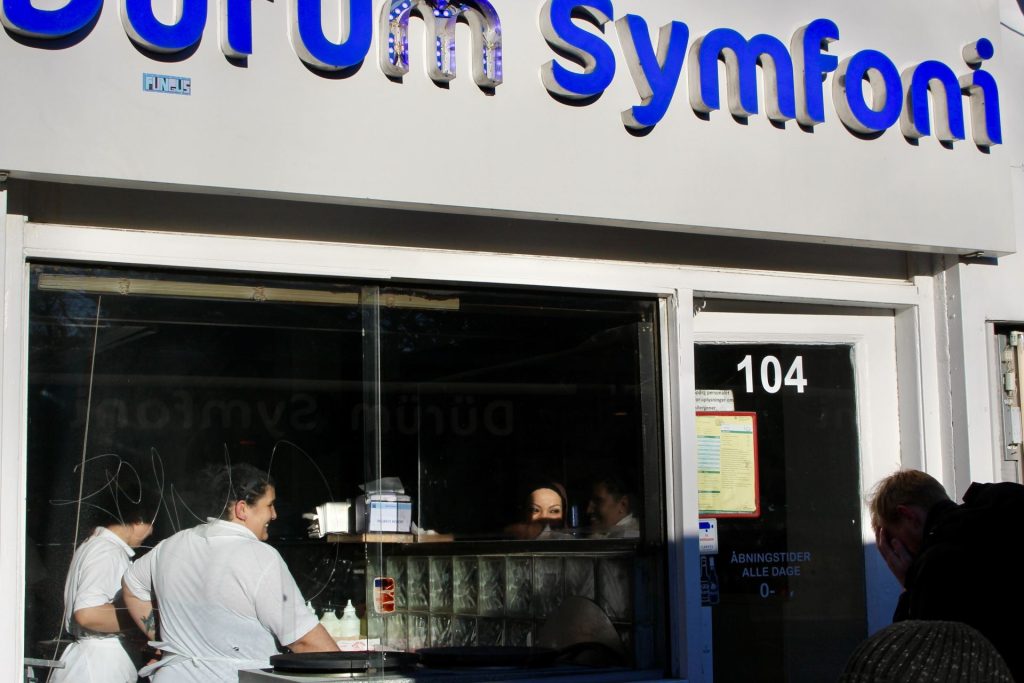
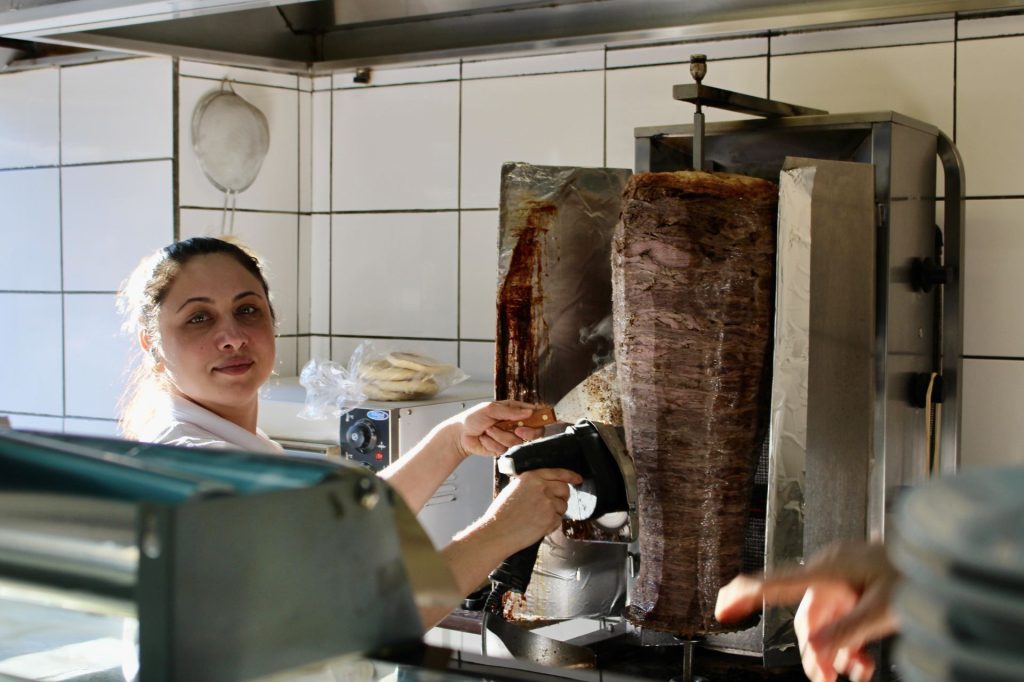
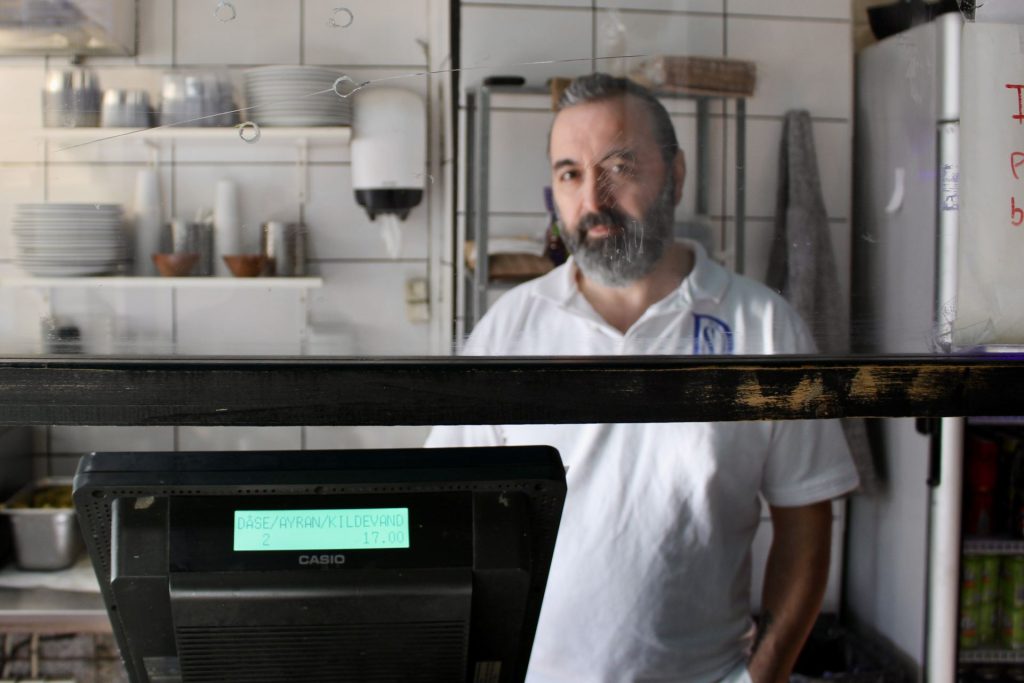
Servan was born in Denmark and spent most of his life in Nørrebro, but still feels connected to his family back in Turkey, which he visits from time to time. The idea to open a shop with dürüm arose from the need to stay afloat during a crisis. “I had some other shops, but then Covid came. So, I had to make some decisions and the only shops that were running at the time were Kebab shops. I bought one and started really liking it, so now I’m considering buying more,” says Servan about the birth of Dürüm Symfoni.
The shop is in Servan’s hands in the mornings. In the afternoons, his family and three other workers, Cemal, Anita and Gylm take over. “My father and little brother will do everything for the business. When I’m not there, I’m sure that they will take the best care of it.”

The front of the counter is full of fresh vegetables and the employees are slicing of some of the meat to put on the bread that they just finished making. “We actually only sell kebab and falafel; you will not find any chicken at our shop. That’s what makes us different from the others,” points out Servan. He thinks that his business has been doing well specifically because of the limited quality selection of food he offers. “Other businesses have too many products, like pizza and burgers, while we keep it simple. We have focus in two things and it’s better like that, we don’t get distracted,” he explains.
Nørrebro has long been called the melting pot of Copenhagen. It’s history of bringing people from all over the world into Copenhagen has started already with the Swedish serving girls and Russian-Jewish refugees from World War II. Today, it attracts many international people and oftentimes English can be heard from the workers in its many cafes. In this everchanging neighborhood, one thing has overtime become a staple though. At night or during busy workhours, Danes and internationals meet to feast or snack in these foodshops, some of them oftentimes in Servan’s. He takes a moment to think about what his favorite meal from his own shop is. “I like the kebab with hummus inside. It’s very crispy,” he says, as Cemal greets a new customer announced by the doorbell. Anita and Gylm get their utensils ready, it is time to serve another portion of their magic.